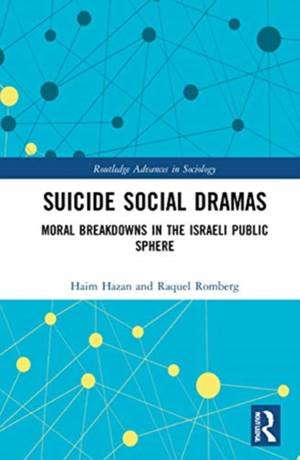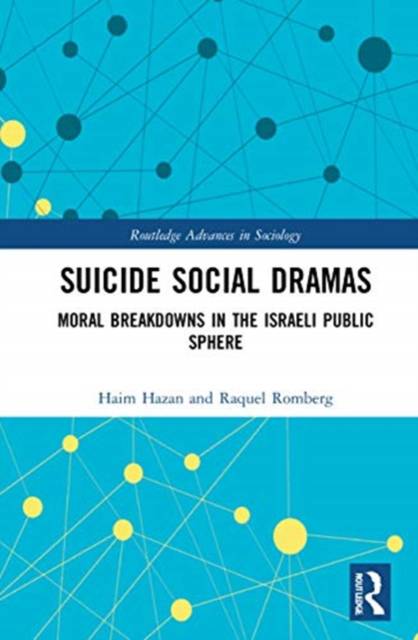
- Retrait gratuit dans votre magasin Club
- 7.000.000 titres dans notre catalogue
- Payer en toute sécurité
- Toujours un magasin près de chez vous
- Retrait gratuit dans votre magasin Club
- 7.000.000 titres dans notre catalogue
- Payer en toute sécurité
- Toujours un magasin près de chez vous
Suicide Social Dramas
Life-Giving Moral Breakdowns in the Israeli Public Sphere
Haim Hazan, Raquel RombergDescription
Through an ethnohistorical chronicling of the emotionally-laden treatment of selected suicide media-events, this book offers a neo-Durkheimean account of suicide, addressing its social-moral threat and the ensuing need to gloss over its unsettling incomprehensibility. An analysis of the social dramas, cultural performances, and suicide talk aired in the Israeli public sphere, it suggests that such public glossing practices atone for and bring about the symbolic rectification of the socially detrimental effects of suicide. Drawing on Durkheim's thought on the social significance of suicide and the sacred cohesive power of society's self-representations through rituals and commemorations, the authors revamp the contemporary pertinence of these cultural devices, showing how, in the process of reconstituting and redressing the disrupted order, suicide talk constitutes a revival mechanism of communal 'life giving'. A rekindling of the Durkheimian approach to suicide that examines how society deals with suicide's shattering of normative we-feelings, Suicide Social Dramas: Moral Breakdowns in the Israeli Public Sphere will appeal to scholars and students of sociology and anthropology with interests in social theory, Israel studies, suicide studies, and the interpretation of societal and cultural processes.
Spécifications
Parties prenantes
- Auteur(s) :
- Editeur:
Contenu
- Nombre de pages :
- 176
- Langue:
- Anglais
- Collection :
Caractéristiques
- EAN:
- 9780367568702
- Date de parution :
- 16-07-21
- Format:
- Livre relié
- Format numérique:
- Genaaid
- Dimensions :
- 156 mm x 234 mm
- Poids :
- 439 g







